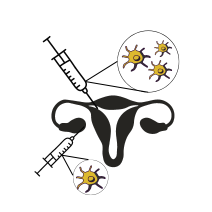IVF Treatment in India | Affordable & Advanced Fertility Solutions
The first successful IVF pregnancy occurred in 1978 with the birth of Louise Brown in the United Kingdom. This revolutionary breakthrough marked the beginning of a new era in fertility treatment. Since then, in-vitro fertilization (IVF) has helped millions of couples worldwide achieve their dream of parenthood, becoming a widely used and successful option for those struggling with infertility. In India alone, it is estimated that over 100,000 IVF cycles are performed annually, showcasing the growing demand and trust in this medical advancement.
In the last decade, the IVF industry in India has witnessed significant transformation, establishing itself as a global leader in advanced fertility solutions. With success rates comparable to international standards and treatments available at a fraction of the cost, India has become a preferred destination for couples seeking affordable yet effective fertility treatments. The combination of world-class medical expertise and cost efficiency makes the Indian fertility industry a beacon of hope for many.
IVF Treatment process have improved and become more effective
Over the years, the IVF Treatment process has seen remarkable advancements. Innovations such as Intracytoplasmic Sperm Injection (ICSI), blastocyst culture, Endometrial Receptivity Analysis (ERA), time-lapse embryo monitoring, and embryo biopsy for genetic testing have significantly improved outcomes. Preimplantation Genetic Testing (PGT) allows for genetic screening of embryos, enhancing the likelihood of a healthy pregnancy. Medication protocols for ovarian stimulation and endometrial preparation have also evolved, focusing on minimizing physiological stress and personalizing treatment plans. Techniques like natural cycle transfers, single embryo transfers, and personalized embryo transfers have further boosted success rates while reducing the number of attempts required.
In India, the Indian Council of Medical Research (ICMR) guidelines, actively governs the IVF treatments process by providing a robust, ethical and procedural framework. These guidelines ensure the safety, efficacy, and well-being of patients undergoing fertility treatments, reinforcing India’s reputation as a trustworthy hub for reproductive healthcare. Thanks to these regulations and standardizations, IVF industry has been able to expand and penetrate into tire 2 and tire 3 cities across India bringing affordable, standardized fertility care within the reach of the middle class. Now IVF is no longer a social taboo but a well accepted mode of treatment for infertile couples.



